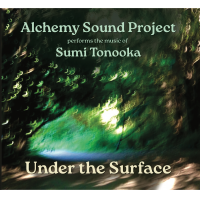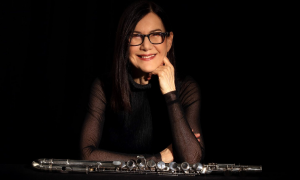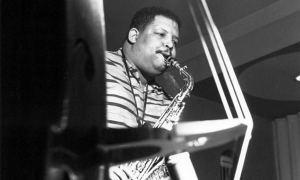Home » Jazz Articles » Interview » George Cables: The PianistĪ»s Dedication to the Group
George Cables: The PianistĪ»s Dedication to the Group


Art Blakey
drums1919 - 1990

Art Pepper
saxophone, alto1925 - 1982

Freddie Hubbard
trumpet1938 - 2008

Woody Shaw
trumpet1944 - 1989

Dexter Gordon
saxophone, tenor1923 - 1990
An integral part of the jazz legacy and history, Cables is now building a portfolio of albums and concerts as a leader and composer/arranger. He is a revered teacher and a true piano master. But musically, he always comes back to the group experience. When he plays, he listens actively to the other musicians and studies their intent. Cables conveys a feeling of being inside the jazz scene, a personal view that resonates with the music itself.
All About Jazz: We'll start with the desert island question. What recordings would you take to that desert island?
George Cables: I'd take some

John Coltrane
saxophone1926 - 1967

Miles Davis
trumpet1926 - 1991

Billie Holiday
vocals1915 - 1959
AAJ: No, you haven't mentioned any pianists!
GC: I wanna go back to Trane again. I'd take his Ballads (Impulse, 1963) recording, which I really love.
AAJ If you were forced to take a piano album, which would you take [laughter]?
GC: Well of course,

McCoy Tyner
piano1938 - 2020

Art Tatum
piano1909 - 1956
AAJ: I was waiting for that.
Early Life and Coming Up
AAJ: Let's go back to your childhood and adolescence. What were your earliest musical experiences? I know you grew up in New York City, but I'm not sure which neighborhood.
GC: I was born in Brooklyn, in Brooklyn Hospital in 1944, and my first address was 244 Gates Avenue in Bedford-Stuyvesant. I was there for about seven years. The next address was on Chauncey Street, between Ralph and Howard Avenues. And then my family moved to St. Albans, Queens. I lived there for about ten years.
AAJ: I believe Jackie Robinson lived there.
GC: Yes, he lived in the Addisleigh Park area, as did a lot of musicians:

Mercer Ellington
trumpet1919 - 1996

Count Basie
piano1904 - 1984

Milt Hinton
bass, acoustic1910 - 2000

Brook Benton
vocals1931 - 1988

James Brown
vocals1933 - 2006

Charles McPherson
saxophone, altob.1939

Paul Jeffrey
saxophone1933 - 2015
Ray Copeland
trumpetb.1926
AAJ: So how did you get interested in music?
GC: My mother played the piano. She was an elementary school teacher. She played the piano in the house, and played organ for her church. I remember as a little kid trying to mimic her, reaching up to the keyboard. And that was also how I started to get interested in music in general.
AAJ: Did your parents play music on the radio or records?
GC: TV had replaced radio by then. But I would sometimes listen to pop music, or even classical, which I was studying on piano at the time.
AAJ: How old were you when you started taking formal lessons?
GC: Well, actually in nursery school I had some lessons [laughter]! But then I went to the Little School next door to the Brooklyn Academy of Music. They had piano teachers, and, as I remember, one of them even attempted to teach a little bit of music theory. But it wasn't until later when I went to the High School of Performing Arts that I really got into theory.
AAJ: How did you get your first taste of jazz?
GC: I think it was in a high school class. I had two friends at Performing Arts, Larry and Richie Maldonado, the latter of whom later became Ricardo Ray, the "Piano Ambassador" who worked with Bobby Cruz. And there was a tuba player, Larry Fishkind. These guys were already familiar with jazz, and Larry turned me on to

Thelonious Monk
piano1917 - 1982

Art Blakey
drums1919 - 1990

Ray Bryant
piano1931 - 2011

Oscar Pettiford
bass1922 - 1960
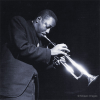
Bill Hardman
trumpet1933 - 1990
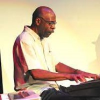
Sam Dockery
piano1929 - 2015

Dave Brubeck
piano1920 - 2012
AAJ: That was a very transformative time in the history of jazz.
GC: Yes, and when I graduated high school, the legal drinking age in New York was eighteen, so I could go to the Five Spot and hear Thelonious Monk, who was there for months at a time, maybe on a double bill with

Mose Allison
piano and vocals1927 - 2016

Charles Mingus
bass, acoustic1922 - 1979

Eric Dolphy
woodwinds1928 - 1964

Ornette Coleman
saxophone, alto1930 - 2015

Marian McPartland
piano1918 - 2013
AAJ: Did you ever go to Birdland?
GC: I went there later, I got to Birdland, and that's where I saw Trane with the great quartet. That was a phenomenal experience. Of course, I wasn't hearing them the way I do now. But it was very exciting.
AAJ: When and how did you start playing with a group?
GC: Well, I heard some guys who had gone to the High School of Music and Arts, and they really played well. There was the great

Billy Cobham
drumsb.1944

One summer before that, I got involved in a neighborhood musical production. We were doing excerpts from West Side Story. We got a trio together for that. That might have been my very first experience playing with a group.
But when I was with Billy Cobham and those guys, Leroy's father was the first black official in the 802 musician's union and helped us get into the union. Artie Simmons was our nominal leader. We started getting gigs at dances, and after a while, we got hired by more experienced guys like " data-original-title="" title="">Rudy Williams, who played trumpet and saxophone. (He wanted me to play organ, but I never could get into that.) We managed to get our group, which we called the Jazz Samaritans, into a competition sponsored by Jazz Interaction. We won the first competition, and as a result, we got a gig somewhere, and then Billy got a gig at the Top of the Gate, and that was around 1967- 68. Billy of course was on the gig, and there was

Eddie Daniels
clarinetb.1941

Johnny Coles
trumpet1926 - 1997
AAJ: So you moved up in the jazz world, playing at the Top of the Gate, no pun intended.
GC: I should add that there was a fellow named
Jimmy Harrison
b.1900
Lenny White
drumsb.1949

Woody Shaw
trumpet1944 - 1989

Booker Ervin
saxophone, tenor1930 - 1970

Art Blakey
drums1919 - 1990
AAJ: Were you thrilled or nervous to play at that level?
GC: Both! I was excited, I was nervous, but I felt better because Woody Shaw was there, and I had some experience with him and knew that he was on my side. Woody and I were about the same age, but musically, he was much more experienced than me. So he would give me encouragement and suggestions.
Moving Forward with the Jazz Greats
AAJ: What were your first recording dates?
GC: My first recording date was with Paul Jeffrey,

Billy Hart
drumsb.1940

Larry Ridley
bassb.1937

Jimmy Owens
trumpetb.1943

Buddy Montgomery
piano1930 - 2009

Buster Williams
bass, acousticb.1942
AAJ: So, around 1969-1970, you really started playing with the legends. You've worked closely with

Sonny Rollins
saxophoneb.1930

Art Pepper
saxophone, alto1925 - 1982

Dexter Gordon
saxophone, tenor1923 - 1990
GC: Yes, but first I gotta talk about Buddy,

Wes Montgomery
guitar1923 - 1968
OK, now I'll go back to Art Blakey. Being in his group was a real musical education. In fact my entire life has been a musical education. In jazz, you learn a lot on the fly from the guys you play with, and being around these people who had changed and shaped the music and given it direction was a great learning experience for me. So working with Art and the musicians around him was special. And then, working with

Max Roach
drums1925 - 2007
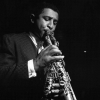
George Braith
saxophoneb.1939
At any rate, they all had something I could learn from. Especially the drummers. I started out with the best of them: Billy Cobham, Lenny White, Art Blakey, Max Roach, and then on to Roy Haines, Philly Joe Jones, Elvin Jones, and Tony Williams, and then I got to play with

Kenny Clarke
drums1914 - 1985

Billy Higgins
drums1936 - 2001
AAJ: And of course you've worked for many years right up until now with another great drummer,

Victor Lewis
drumsb.1950
GC: I play a lot with Victor, who is a very creative player and into dynamics. We worked with Dexter back in the day, and often since then right up to the present time. I feel very comfortable with him. I do think that when I play the piano, and I'm comping, I have a close relationship with the drums. The piano is a percussion instrument, so I learned very early to work closely with the drummers.
AAJ: Let me ask you about Art Pepper, whom you worked with extensively. First of all, was Pepper part of that scene you've been discussing?
GC: No. What happened was, I moved to California, where I worked with

Freddie Hubbard
trumpet1938 - 2008
Lester Koenig
b.1918
Joe Henderson
saxophone1937 - 2001

Orrin Keepnews
producer1923 - 2015

David Williams
bassb.1946
AAJ: I had no idea that Elvin worked with Art Pepper!
GC: Oh, yeah! One record we did, Live at the Village Vanguard (Contemporary, 1970), was Album of the Year in Japan. Elvin Jones and

George Mraz
bass1944 - 2021
AAJ: I recently listened to a CD of a concert you did with Pepper in Japan (Live in Osaka, 1979, and it blew me away! I think Billy Higgins was on drums, and

Tony Dumas
bassb.1955
GC: I spent a few years with Art, and some of them overlapped with the years I spent with Dexter. I worked with Art when Tony Dumas and Billy Higgins were the rhythm section with drummer Carl Burnett. And bassist David Williams and Carl were in the rhythm section. At the time, another pianist would sometimes play with Art, a guy from Bulgaria,

Milcho Leviev
pianob.1937

Stanley Cowell
piano1941 - 2020

Hank Jones
piano1918 - 2010
AAJ: Did your first work with Dexter occur after he came back from Europe in the late 1970s?
GC: Yeah, it was around '77, and he had already done the famous record Homecoming at the Vanguard, which had Woody Shaw and his band on it. Ronnie Matthews was the pianist. Woody Shaw and Todd Barkan recommended me to Dexter. So when Dexter came out west and played in L.A. and San Francisco, I played with Dexter at the Keystone Corner in the latter city. We hit it off, and that was probably one of the greatest musical relationships for me. I think of Dexter as my musical father. For me, Dexter and jazz are almost synonymous. He represents what jazz is. That is what inspired my album, A Letter to Dexter (Kind of Blue, 2006).
AAJ: That's quite a compliment, even for Dexter! So what was it like to work with him?
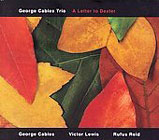 GC: It was just fun, because he wanted to be leader and also just wanted to play. He was very creative and arranged our choruses. We had a quartet that really developed, with
GC: It was just fun, because he wanted to be leader and also just wanted to play. He was very creative and arranged our choruses. We had a quartet that really developed, with 
Rufus Reid
bass, acousticb.1944

Eddie Gladden
b.1937I remember that one day he gave me a piano solo on a ballad, and the band suddenly stopped playing! I had no accompaniment, and I just started playing my solo piano, and I wasn't used to doing that, but I kept finding things to play and really stretchin' it out and being fairly free, and playing rubato, and out of tempo. And Dexter encouraged me for taking that risk, and I'm grateful for that because he helped me find out what I can do playing solo.
AAJ: That's interesting, because you had already been playing for many years with some of the greats. But something clicked in, and you got into a new groove.
GC: I had been playing with Joe Henderson and Freddie Hubbard using electronic piano and keyboards, so with Dexter, I returned to playing acoustic piano, which I really liked.
AAJ: You could say that Dexter was a game changer for you. When you think back, were there any others who had a similar transformative influence on you?

GC: Well, with Art, as well as

Frank Morgan
saxophone, alto1933 - 2007
AAJ: Now, you have often stated that you listen to groups more than you listen to pianists, which is certainly the case with your desert island selections!
GC: There was a time I listened to pianists. I listened to O.P.—

Oscar Peterson
piano1925 - 2007

Wynton Kelly
piano1931 - 1971

Red Garland
piano1923 - 1984

Herbie Hancock
pianob.1940
So what I really liked and listened to was the way the band worked together. The music, the dynamics, the direction, the colors, and so on. When I played, I would think not only in terms of chords, but in terms of the colors, the sounds. And I got a lot of that from Miles. It seemed that he was painting a picture. When you heard them in person, you got the feeling there was magic happening right in front of your eyes. And with Trane it was the energy and the sound colors, that Trane or McCoy would lead you into, like sometimes McCoy'd play the piano like a drum. And all those colors, not like this is a B-flat minor chord, but there was more than that. You could hear that center, but you'd also hear all the colors around it. So of course I could hear the piano, but it was the overall band that interested me most.
AAJ: Speaking of Coltrane, in his late career, he started going very far out musically. I'm interested in how musicians vary between those who stick pretty much to traditional modes versus those who go outside the canon. You seem to stay within the tradition, while being quite inventive and creative. You did some time with

Archie Shepp
saxophone, tenorb.1937
GC: I worked with Archie, but the way I heard him, he actually went back to basics, back to the roots. He would go back to the blues. I mean, he would play "Giant Steps," but where some guys would be dealing with the trees, so to speak, he seemed to be dealing with the forest. Sometimes I'd wonder if it was my imagination what I'd hear him doing! But he wasn't into Ornette's kind of free jazz so much.
AAJ: Do you know what makes a musician stay close to the shore as opposed to going out into the vast ocean of musical possibilities?
GC: I personally do like to experiment with colors and sounds, but I'm always thinking of the tonal center. But, still, I can step to the left or the right or make the music more chromatic, like V to I with a flat II to I, that's just a beginning. But I always wanted to play against the chords as well as within them. Woody [Shaw] was really one for that! I always like playing against the chord with Woody, but he would often ask me to "stay home" [stay with the original chord] because he felt his contrasts could be heard better that way. But I still like to go in and out of the chord, against the chord. It also depends on the group. If I'm playing with

The Cookers
band / ensemble / orchestraNew Projects
AAJ: Let's try to bring it up to the present a bit now. In the last couple of decades, you've been very productive. And despite having had some serious medical issues, you've recently made a number of recordings as a leader.
 GC: Yes, I've been excited about that. I have had some health issues that made things seem more urgent. I've been fortunate all my life to have been able to play with some really great musicians. More recently, I've been writing more as well as exploring some of the things that I've written before. So my last record, My Muse (HighNote, 2012), which is dedicated to my late partner Helen, is a trio record, and pretty topical and lyrical at that.
GC: Yes, I've been excited about that. I have had some health issues that made things seem more urgent. I've been fortunate all my life to have been able to play with some really great musicians. More recently, I've been writing more as well as exploring some of the things that I've written before. So my last record, My Muse (HighNote, 2012), which is dedicated to my late partner Helen, is a trio record, and pretty topical and lyrical at that. AAJ: That's a wonderful recording by the way. It's so listenable and expressive. When I heard it, I thought of some pianists you haven't mentioned, especially

Tommy Flanagan
piano1930 - 2001

Kenny Barron
pianob.1943
GC: Those are great pianists, and I'm very grateful to be mentioned in the same breath as them. Kenny is one of my favorite pianists and a great influence on me from years ago. I first became aware of him when he was with

Dizzy Gillespie
trumpet1917 - 1993
AAJ: "Elegance" is the word I was looking for to describe Tommy and Kenny as well as your new album.
GC: Yet, at the same time, I don't want to be exactly like them. They have their territory staked out. I don't want to compete with them. But Kenny is just a great pianist, and I love the way he touches the piano...
AAJ: I didn't mean to imply that you were imitating them, only that you share a certain tradition in common.
GC: I think that we're related in some ways. Kenny, like me, likes to go outside the chords. I think we have similar influences. For example, Art Tatum is our pianistic grandfather. And I love the piano. I've been exploring that in another record that we're working on, that we're calling "Icons and Influences," so I can reach back a bit and play some music, let's say, by

Dave Brubeck
piano1920 - 2012

Duke Ellington
piano1899 - 1974

Mulgrew Miller
piano1955 - 2013

Cedar Walton
piano1934 - 2013
So, I have my various projects coming up. I have a songbook with some of what I've written, but in different settings, like with the young vocalist

Sarah Elizabeth Charles
vocals
Steve Wilson
saxophoneb.1961

Victor Lewis
drumsb.1950

Essiet Essiet
bassb.1956

Cecil McBee
bassb.1935

Craig Handy
saxophoneb.1962

Gary Bartz
saxophone, altob.1940
And of course, the Dexter Gordon legacy is very important to me. At the February 2014 Dexter Gordon Birthday event at Dizzy's, the rhythm section is going to be Victor and probably Rufus. For the front line, I have in mind

Brandon Lee
trumpetb.1983

Jerry Weldon
saxophone, tenor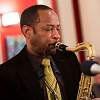
Walter Blanding
saxophone, tenorb.1971

Joe Locke
vibraphoneb.1959

Bob Magnuson
saxophone, altoSo I have my hands in a lot of things. And then I'm teaching an improv ensemble at the New School. In the past, I've had a Herbie Hancock ensemble in which we played the music of Herbie. This year, it's the improv ensemble, which is pretty open as to which music. So far, I've brought in a McCoy Tyner piece, a couple of my own pieces, some Charlie Parker, a great variety.
AAJ: What is the instrumentation?
GC: This year I have alto, tenor, piano, bass, drums, and guitar.
AAJ: A lot of the best jazz training happens at the New School.
GC: Right. There are great instructors who really care what happens with the music and the young musicians.
AAJ: Things are pretty exciting for you.
GC: Yeah, they are. I'm busy, I can tell you that.
Getting Personal
AAJ: I always ask the musicians about their personal life, because, as Charlie Parker said, "If you haven't been through it, it won't come out of your horn." You mentioned your partner Helen. Tell us about her.
GC: Helen passed away from pancreatic cancer in November, 2010. I still feel her presence. We were together for 28 years. No kids, probably by choice.
AAJ: I know you've had your own medical issues. I understand you're doing very well right now.
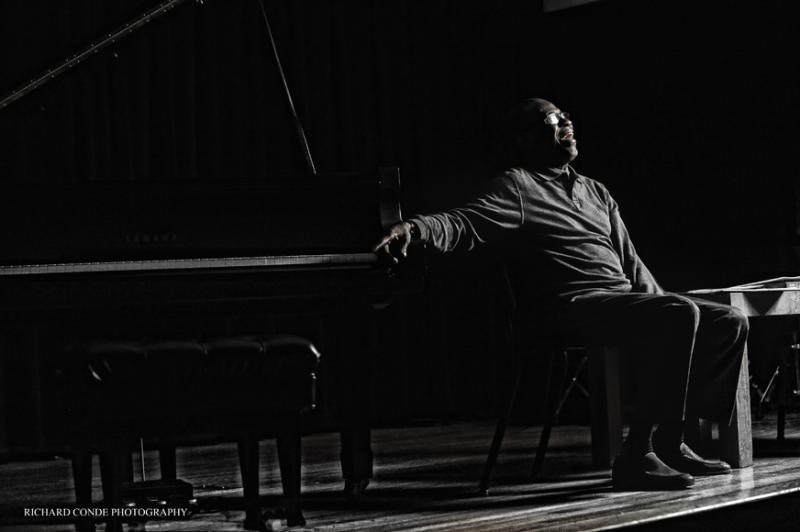
GC: I was on dialysis for about five years, which of course made traveling a little more difficult. I was on hemodialysis, so I had to be on the machine four hours each of three days a week. But you do what you have to do, but then I had a kidney and a liver transplant.
AAJ: Were the two transplants done together?
GC: Yes. It's like when those utility guys come out on the street to fix the electric or gas lines underground. They open up the street, and close it up, and then another crew comes in and does the same thing! So the liver team comes in, they do their work, they close you up, and then the kidney people are right behind them! I had it done at Mt. Sinai Hospital in New York. The first was in 2007 and then in 2008 they replaced the first kidney transplant. I can't get over how well the new kidney has worked, and in my last tests, everything was perfect!
Not too long ago, I went to the 20th anniversary of the Mt. Sinai liver transplant unit, and I was so impressed with the progress they've made in that field. And they have to deal with the fine line between medical care and experimentation. There are many risks involved. The dedication. So many critical decisions to make. And when I was there, they really took great care of me.
AAJ: Were any of the medical staff into jazz?
GC: Yes, a few of them were, and one in particular was into piano music.
AAJ: Jazz is about the story of our lives. And Coltrane famously said, "Music is my spirit." Having lived life fully, and with all the experiences and issues you've had, and all the remarkable people you've met, do you have any over-riding perspective on life?
GC: I'm just really amazed at all the wonderful things that have happened in my life. I try to take things as they come and just try to be the best person that I can be, and just do what I'm supposed to do now. You know, you have times in your life when you kind of screw around, but at this time in my life, I just try to take things as they come. There are things that I just can't define, but they're there, and I just try to go with them. I don't understand everything, but I just try to be positive. The spirit is in everything. Life is all around us, and you just try to be in tune with everything. Basically, I just try to be in tune with what happens, and music is a great part of that. Music is how I express myself and whatever it is I have in me. I'm not arrogant enough to say, "I know this is what it's all about." Life is a wonder, and I'm a small part of that, and I'm just trying to be whatever I can be.
AAJ: Being in the now, in the zone, in the spirit, in the wonder. It's like being in a great jazz group!
GC: Right! Exactly! I've had wonderful friends. I've been blessed by being close to some of the greatest musicians in the world. Still, sometimes, when I think about it, I wanna say, "Why me? Why did this happen?" But I never take my blessings for granted.
Selected Discography
George Cables, My Muse (HighNote, 2012)
Dexter Gordon, Night Ballads (Uptown, 2012)
Art Pepper, Live in Osaka, 1979 (Widow's Taste, 20012)
George Cables, A Letter to Dexter (Kind of Blue, 2006)
George Cables, Alone Together (Groove Jazz, 2000)
Dexter Gordon, Live at Carnegie Hall: Complete (Columbia Legacy, 1998)
George Cables, Skylark (SteepleChase Records, 1995)
George Cables, By George (Contemporary Records, 1987)
George Cables, The Big Jazz Trio (Eastworld, 1984)
Art Pepper and George Cables, Goin' Home (Galaxy, 1982)
Art Pepper, Live at the Village Vanguard (Contemporary Records, 1980)
George Cables, Cables' Vision (Contemporary Records, 1979)
Bobby Hutcherson, Conception: The Gift of Love (Columbia, 1979)
Art Pepper, Friday Night at the Village Vanguard (Contemporary, 1977)
Art Pepper, The Trip (Contemporary, 1976)
Art Blakey, Child's Dance (Prestige, 1972)
Curtis Fuller, Crankin' (Mainstream, 1971)
Max Roach, Lift Every Voice and Sing (Atlantic, 1971)
Joe Henderson, At the Lighthouse (Milestone, 1970)
Woody Shaw, Blackstone Legacy (Contemporary, 1970)
Photo Credits
Page 2: Steven Sussman
Page 4: John Kelman
Page 6: Richard Conde
Tags
George Cables
Interview
Victor L. Schermer
United States
Art Blakey
Art Pepper
Freddie Hubbard
Woody Shaw
Dexter Gordon
John Coltrane
Miles Davis
Billie Holiday
McCoy Tyner
Art Tatum
Mercer Ellington
Count Basie
Milt Hinton
Brook Benton
James Brown
Charles McPherson
Paul Jeffrey
Ray Copeland
Thelonious Monk
Ray Bryant
Oscar Pettiford
Bill Hardman
Sam Dockery
Dave Brubeck
Mose Allison
Charles Mingus
Eric Dolphy
Ornette Coleman
Marian McPartland
Birdland
Billy Cobham
Artie Simmons
Rudy Williams
eddie daniels
Johnny Coles
Jim Harrison
Lenny White
Booker Ervin
Billy Hart
Larry Ridley
Jimmy Owens
Buddy Montgomery
Buster Williams
Sonny Rollins
Wes Montgomery
Max Roach
George Braith
Kenny Clarke
Billy Higgins
Victor Lewis
Lester Koenig
Joe Henderson
Orrin Keepnews
David Williams
Village Vanguard
George Mraz
Tony Dumas
Carl Burnett
Milcho Leviev
Stanley Cowell
Hank Jones
Ronnie Matthews
Todd Barkan
Rufus Reid
Eddie Gladden
Frank Morgan
oscar peterson
Wynton Kelly
Red Garland
Herbie Hancock
archie shepp
The Cookers
Tommy Flanagan
Kenny Barron
Dizzy Gillespie
duke ellington
Mulgrew Miller
Cedar Walton
Sarah Elizabeth Charles
Dizzy's Club Coca Cola
Steve Wilson
Essiet Essiet
Steve Kroon
cecil mcbee
Craig Handy
Gary Bartz
Brandon Lee
Jerry Weldon
Walter Blanding
Joe Locke
Bob Magnuson
Comments
PREVIOUS / NEXT
George Cables Concerts
Sep
17
Wed

George Cables Quartet
Smoke Jazz & Supper ClubNew York, NY
Sep
17
Wed

George Cables Quartet
Smoke Jazz & Supper ClubNew York, NY
Sep
18
Thu

George Cables Quartet
Smoke Jazz & Supper ClubNew York, NY
Sep
18
Thu

George Cables Quartet
Smoke Jazz & Supper ClubNew York, NY
Sep
19
Fri

George Cables Quartet
Smoke Jazz & Supper ClubNew York, NY
Sep
19
Fri

George Cables Quartet
Smoke Jazz & Supper ClubNew York, NY
Sep
19
Fri

George Cables Quartet
Smoke Jazz & Supper ClubNew York, NY
Sep
20
Sat

George Cables Quartet
Smoke Jazz & Supper ClubNew York, NY
Support All About Jazz
 All About Jazz has been a pillar of jazz since 1995, championing it as an art form and, more importantly, supporting the musicians who make it. Our enduring commitment has made "AAJ" one of the most culturally important websites of its kind, read by hundreds of thousands of fans, musicians and industry figures every month.
All About Jazz has been a pillar of jazz since 1995, championing it as an art form and, more importantly, supporting the musicians who make it. Our enduring commitment has made "AAJ" one of the most culturally important websites of its kind, read by hundreds of thousands of fans, musicians and industry figures every month.


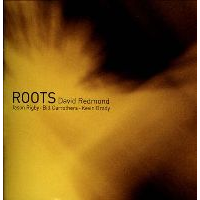




 Buy Now
Buy Now


